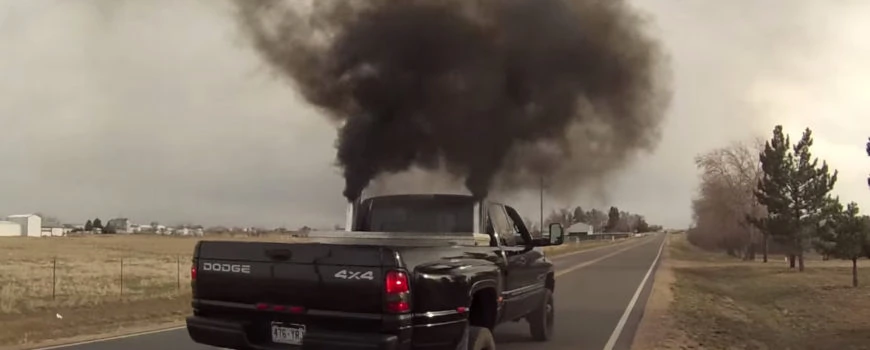The RPM Act Prevent the Ban of Modifying Cars

The RPM Act Prevent the Ban of Modifying Cars
A new bill introduced, dubbed H.R. 3281 threatens the very survival of the car modifying hobby.
The Clean Air Act states quite clearly that it is prohibited “for any person to manufacture or sell, or offer to sell, or install, any part or component intended for use with, or as part of, any motor vehicle or motor vehicle engine, where a principal effect of the part or component is to bypass, defeat, or render inoperative any [emissions control] device.” There is no magical exemption for different uses of a certified motor vehicle.
For decades, manufacturers of aftermarket car parts got around this by adding the “For Off-Road Use Only” disclaimer on their packaging, advertising and on their website.
There are those who wonder how a government agency like the EPA, one that has no elected members, can write legislation. The answer is that EPA is called a regulatory agency because Congress authorizes them to write regulations that explain the technical, operational, and legal details necessary to implement laws. Regulations are mandatory requirements that can apply to individuals, businesses, state or local governments, non-profit institutions, or others.
In other words, the politicians we elect give power to the EPA to reign supreme. Elections have consequences, as they say.

The “rolling coal” displays have brought unwanted attention to the industry. Enforcement from the EPA has generally focused on high-profile diesel tuners and shops.
These strong anti-tampering provisions have allowed EPA to target the manufacture, sale, and installation of parts intended to “bypass, defeat, or render inoperative” emissions controls, aka “defeat devices.” However, the RPM Act is designed to neuter this capability.
The RPM Act creates a loophole centered on the usage of a motor vehicle, which gives cover to anyone who manufacturers, sells, or installs a defeat device—the RPM act as written would create an exemption “if the action is for the purpose of modifying a motor vehicle into a vehicle that is not legal for operation on a street or highway and is to be used solely for competition.”
What this means in practice is that EPA would no longer be able to explicitly target manufacturers who sell these products online—these aftermarket providers would be able instead to hide behind a purported belief that a purchaser was going to modify their vehicle into a competition vehicle. It pushes enforcement away from the primary source of the problem—manufacturers selling defeat devices to the masses—and immediately limits investigation and enforcement actions to installers of the defeat device, at which point EPA would likely have to further prove that the installer/seller of the device knew that the product was not for a competition-only vehicle.
According to the “Union of Concerned Scientists,” the battle is about money.
From a September 2020 article on their website:
Why the RPM Act keeps coming back
As with most tiny, obscure bills like this, the reason why the RPM Act keeps on being introduced year after year is money. The Specialty Equipment Market Association (SEMA) is the trade association for aftermarket equipment manufacturers, including the companies manufacturing defeat devices, and they have been fighting with EPA for the exemption for at least 5 years.
SEMA is not interested in air quality or public health or whether the RPM Act restricts EPA’s ability to do its job. SEMA is simply interested in making it easier for its members to make money. How do we know this? Because the RPM Act is not designed to solve the problem that SEMA claims exists.
From SEMA’s Website:
The RPM Act of 2021 (H.R. 3281), is common-sense, bi-partisan legislation to protect Americans’ right to convert street vehicles into dedicated racecars and the motorsports-parts industry’s ability to sell products that enable racers to compete. The bill clarifies that it is legal to make emissions-related changes to a street vehicle for the purpose of converting it into a racecar used exclusively in competition. It also confirms that it is legal to produce, market and install racing equipment.
The RPM Act reverses the EPA’s interpretation that the Clean Air Act does not allow a motor vehicle designed for street use—including a car, truck, or motorcycle—to be converted into a dedicated racecar. This American tradition was unquestioned for 45 years until 2015 when the EPA took the position that converted vehicles must remain emissions-compliant, even though they are no longer driven on public streets or highways. Although the EPA abandoned efforts to make the policy a formal regulation, the agency still maintains the practice of modifying the emission system of a motor vehicle for the purpose of converting it for racing is illegal. Manufacturing, selling, and installing race parts for the converted vehicle would also be a violation. The EPA has also announced that enforcement against high performance parts—including superchargers, tuners, and exhaust systems—is a top priority.
In short, the RPM ACT would completely ban the installing, selling and manufacturing of any kind of racing parts. Essentially, that means any part that isn’t specifically approved by the EPA. This means headers, cams, cylinder heads, superchargers, turbos, exhaust systems, and so forth.
The RPM Act would effectively end all forms of hot rodding, tuning, and modifying of vehicles except for cosmetic accessories.
So what can be done: 1) Stop voting for these politicians who believe in the over-regulating of industry and infringing on the rights of individuals, and 2) Put your already-elected politicians on notice that you won’t vote for them if they pass this bill. HR 3281.
You can send a message to your elected officials easily using THIS LINK
